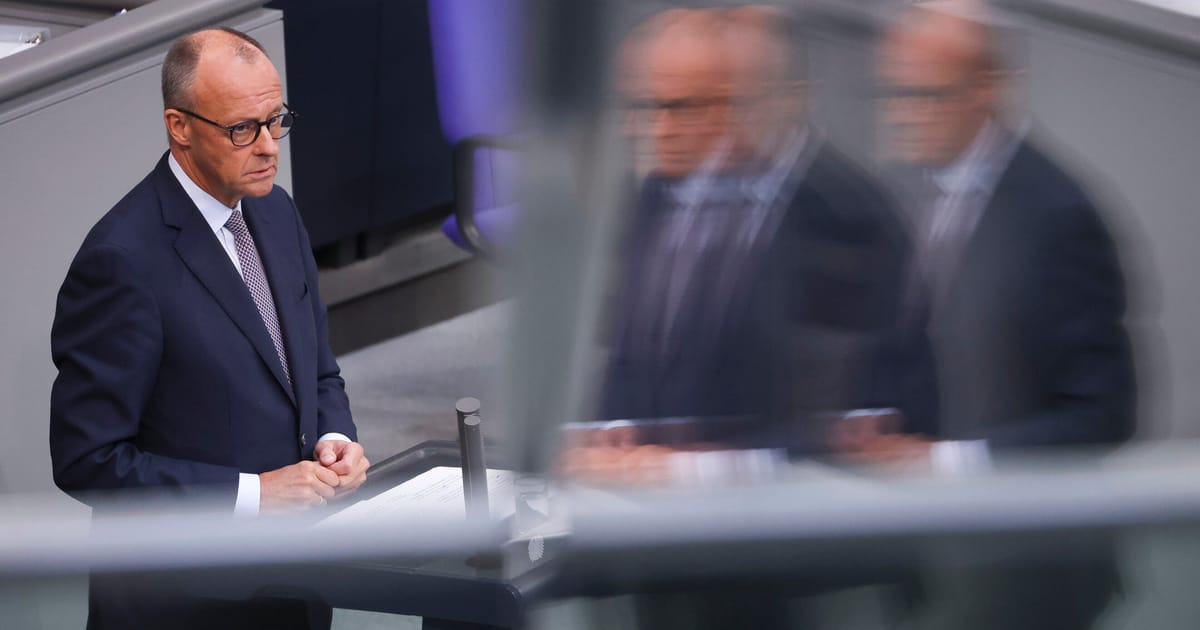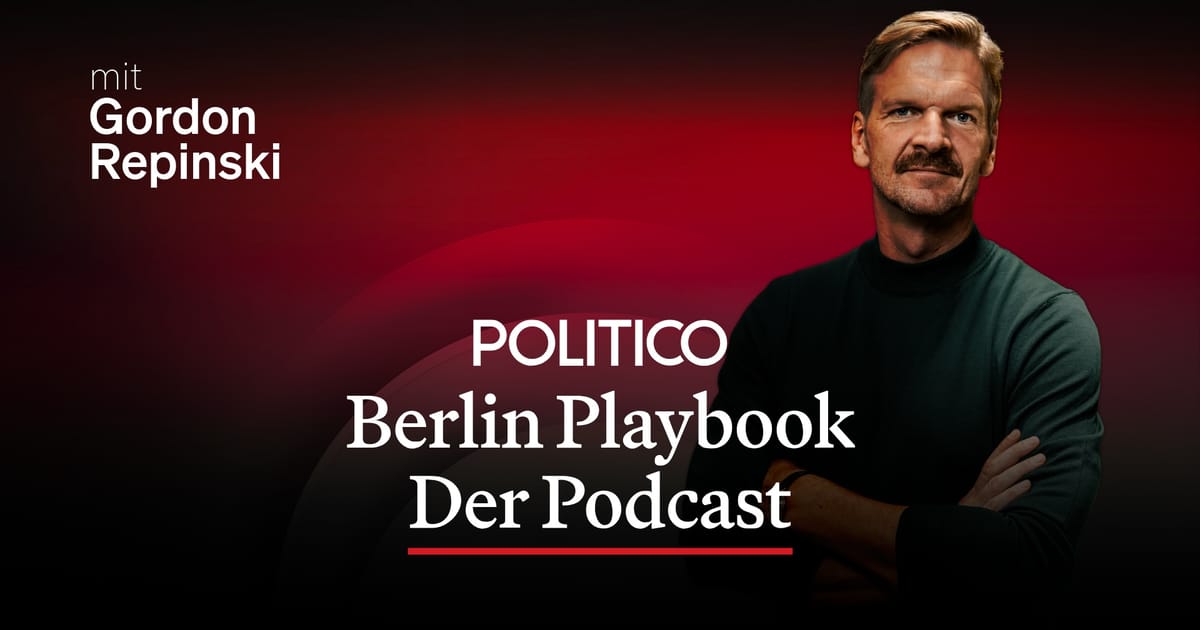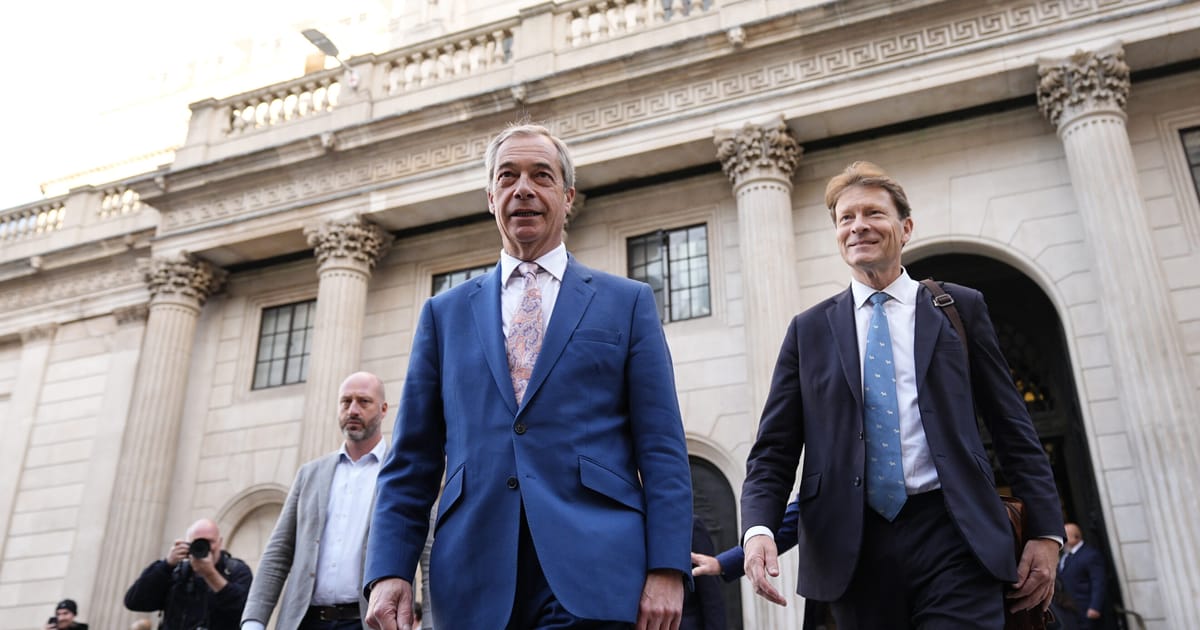EU Affairs
Friedrich Merz’s fight to fix the German economy is already on the ropes

Read more on post.
Dittrich called on the government to immediately do away with unnecessary bureaucracy and overhaul Germany’s social security system to control surging costs. “We must not lose our competitiveness because we cannot afford to pay for all this,” Dittrich said. “We must ensure that we can continue to invest.”
‘There is no plan’
One reason Merz’s options are limited is his relative political weakness. With the rise of the political extremes, the chancellor’s ideologically divergent coalition has one of the narrowest parliamentary majorities in Germany’s postwar history.
It was that weakness that forced Merz to undertake what may well end up being his most ambitious reforms even before taking office. In March, Merz used the outgoing parliament to push through a historic package of spending reforms that partially untethered Germany from the self-imposed spending restraints of its constitutional debt brake, creating a €500 billion infrastructure and climate fund and allowing for massive defense spending to face down the threat posed by Russian President Vladimir Putin.
Merz decided to act at that moment because the country’s centrist parties still had the two-thirds majority needed to amend the constitution while the previous parliament was still in power. That’s a majority he no longer has, limiting his ability to undertake similarly sweeping constitutional reforms.
But the bigger problem for Merz is that the spending reforms already passed are likely not enough to drive robust growth, economists say.
For one thing, there are doubts as to whether Germany’s massive defense spending increase will stimulate much economic growth, as some have hoped. In the short term, every euro the German government spends on defense will lead to only 50 cents of additional economic activity, according to a study by economists at the University of Mannheim. In the longer term the effects are hard to predict, according to the authors.
EU Affairs
‘Let’s have a trial’: Comey proclaims innocence as Trump revels in grand jury indictment he demanded
EU Affairs
Constantin Schreiber: Israel zwischen Tragödie, Trauma und Hoffnung

Read more on post.
Constantin Schreiber: Israel zwischen Tragödie, Trauma und Hoffnung – POLITICO
Advertisement
EU Affairs
Farage takes on the Bank of England with blast against QE legacy

Read more on post.
The Reform duo also urged the Bank to stop the active selling of the gilts it bought during the QE period, something that several analysts and investors have argued is putting unnecessary upward pressure on the government’s borrowing costs. Tice told POLITICO on Thursday that stopping gilt sales alone could have taken around £1.5 billion off the government’s bill for debt interest this year. The Bank argues that the taxpayer wouldn’t end up paying any less in the long run, though.
Reform is now seeking a full parliamentary debate on ‘quantitative tightening’, or QT, when MPs return from their recess, something he may get in the second half of next month if the Leader of the House of Commons is sympathetic. “It’s much more powerful as a debate in government time, as opposed to a backbench business debate,” Tice argued.
The political argument is simple. “If Parliament via the Chancellor of the Exchequer gave a different steer to the Bank of England, this could significantly reduce the need for tax rises at the Budget,” Tice said in a statement released after the meeting.
Reeves can ill afford to ignore anything that will raise money at a time when sluggish growth and productivity and constant increases in spending have made it all but impossible for her to stick to her own self-defined fiscal rule. And left-leaning think-tanks such as the Institute for Public Policy Research and Positive Money have already come to much the same conclusions.
Yet Reform’s high-volume handling of a meeting that the Bank styled as a routine meeting with elected politicians represents something of a break with convention. Since Tony Blair’s government granted the Bank independence in 1997, party leaders have refrained from appearing to give instruction to the Bank on how to conduct monetary policy.
Tice, however, in comments to POLITICO, argued that the issue is essentially a fiscal one, since the losses incurred by the Bank through QT have to be picked up by the taxpayer. “Parliament has failed in its duty to give the Bank more direction and support in this area,” he said. “It’s left the Bank to make its own decision and sort of … swing in the wind.”
-
Culture3 days ago
Taylor Swift’s new cinema outing generates more than €12million in just 24 hours
-
Politics3 days ago
European Parliament snubs Orbán with vote to shield Italian MEP from Hungarian arrest
-
Health4 days ago
EU renews support for WHO’s Universal Health Coverage Partnership
-
Culture3 weeks ago
Life, loss, fame & family – the IFI Documentary Festival in focus
-
Environment6 days ago
Key oceans treaty crosses threshold to come into force
-
Culture3 days ago
Twilight at 20: the many afterlives of Stephenie Meyer’s vampires
-
Culture2 months ago
Fatal, flashy and indecent – the movies of Adrian Lyne revisited
-
Culture1 week ago
Farewell, Sundance – how Robert Redford changed cinema forever







































